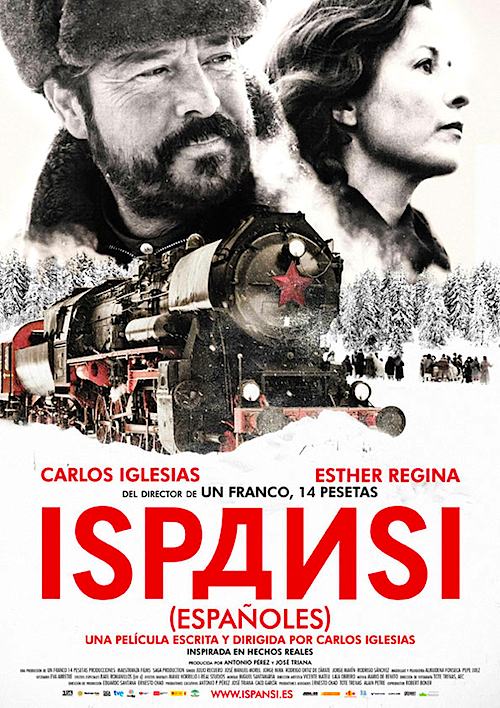 By Joe Bendel. Stalin’s Russia was never a safe haven. Unfortunately, many exiled Spanish leftists went from the frying pan into fire when they sought refuge in the Soviet Union. The Eastern Front is decidedly inhospitable to them in writer-director-leading man Carlos Iglesias’s Ispansi (trailer here), which screens today (Friday, 12/9) during the Film Society of Lincoln Center’s Spanish Cinema Now.
By Joe Bendel. Stalin’s Russia was never a safe haven. Unfortunately, many exiled Spanish leftists went from the frying pan into fire when they sought refuge in the Soviet Union. The Eastern Front is decidedly inhospitable to them in writer-director-leading man Carlos Iglesias’s Ispansi (trailer here), which screens today (Friday, 12/9) during the Film Society of Lincoln Center’s Spanish Cinema Now.
Alvaro is not just a Republican veteran. He was a “political” officer, which implies some heavy things for his proletarian companions. Paula is not one of them. Traveling under an assumed working class identity, the former aristocrat came to the Soviet Union with a group of orphans sent to the socialist paradise for their supposed protection. Among them is the illegitimate son she was forced to give up. Since then she has watched over him as an ostensive volunteer social worker. However, she cannot protect him from the arbitrary dangers of war.
Aside from the children, Paula thinks little of her comrades and even less of Alvaro. He also distrusts her, instinctively sensing her insufficient class consciousness. Of course, the sexual tension passing between them is also hard to miss.
Ispansi (Russian for Spaniards) is not exactly Dr. Zhivago, but nothing is. It covers a fair sweep of geography over several decades, while addressing politics with relative nuance. Since under the soon-to-be-former Socialist government any expression of sympathy for the still dead General was effectively prohibited, one would expect the film’s anti-Franco sympathies. Yet, to his credit, Iglesias does not let the Soviets entirely off the hook. In fact, some of Ispansi’s more chilling scenes portray the Soviets’ forced deportation (more or less ethnic cleansing) of the Volga Germans. Continue reading LFM Review: Ispansi


